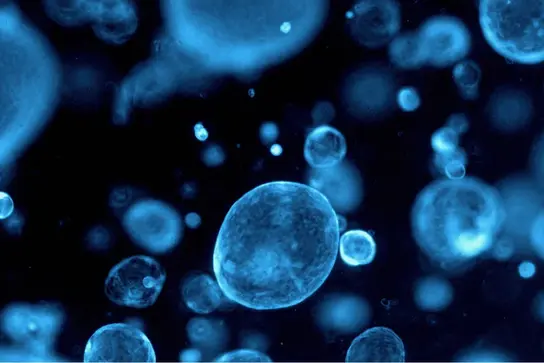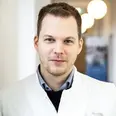Translational Surgical Oncology
- DKFZ Hector Cancer Institute
- Cell and Tumor Biology
- Clinical Cooperation Unit
- Junior Research Group

apl. Prof. Dr. Sebastian Schölch
Metastases represent a critical barrier in surgical oncology: Once tumor cells spread throughout the body, a potentially operable tumor often becomes inoperable and, therefore, incurable. Our group investigates the biological mechanisms of metastasis to develop innovative strategies that prevent or control tumor dissemination, thereby expanding surgical treatment options for cancer patients.

Our research

Research Focus
The central focus of our work lies in metastasis research. We study how tumor cells manage to travel from the primary tumor through the bloodstream to distant organs, where they grow into metastases. Specifically, we are interested in how these cells survive in the bloodstream. Currently, we are investigating how tumor cells recruit platelets (thrombocytes) in the bloodstream to gain survival advantages. Additionally, we are exploring how the composition of the cell membrane influences the ability of tumor cells to metastasize successfully.
Recent Developments
Our latest findings reveal how certain signaling molecules on the surface of circulating tumor cells can activate platelets and tightly bind them to the tumor cell. This creates a layer of platelets around the tumor cells, protecting them from shear forces and immune cells in the bloodstream. Additionally, we have demonstrated that this interaction provides further advantages for the tumor cell.
Another key area of research for our group is the precise lipid composition of the cell membrane and its impact on membrane elasticity and the cell’s ability to migrate into and out of the bloodstream. The ratio of saturated to unsaturated fatty acids in the cell membrane plays a crucial role in this process.
Methods and Technologies
We employ a wide range of cutting-edge methods. Our work includes both preclinical models and classical cell cultures, as well as samples that we bring directly from the operating room to our laboratories. We isolate circulating tumor cells from patient blood samples, analyze their DNA and RNA at the single-cell level, or cultivate them as organoids or in pulsatile circulating cell cultures, where we can simulate blood flow in the laboratory.
In addition, we use computational models to simulate the spread of tumor cells and identify potential therapeutic targets.
Goals and Societal Relevance
Although metastasis is by far the most common cause of death among cancer patients, there are currently no therapies directly targeting metastasis. Our long-term goal is to translate our findings into effective treatment options to prevent distant metastases. For example, we are currently working on therapies designed to prevent the intraoperative spread of tumor cells, which could significantly improve the prognosis for patients undergoing cancer surgery.
Team
-

apl. Prof. Dr. Sebastian Schölch
-
Dr. Lei Zhu
-
Dr. Nina Wang
-
Louisa Channon
-
Jianxin Tao
-
Shaoqian Du
-
Lena Lemmer
-
Tim Julius Leitolf
-
Annelise O'Connell
Selected Publications
De Santis A, Zhu L, Tao J, Reißfelder C, Schölch S.
Maier CF, Schölch C, Zhu L, Nzomo MM, L’hoest H, Marschall U, Reißfelder C, Schölch S.
Jin F, Zhu L, Shao J, Yakoub M, Schmitt L, Reißfelder C, Loges S, Benner A, Schölch S.
Tao J, Zhu L, Yakoub M, Reißfelder C, Loges S, Schölch S.
Zhu L, Kan KJ, Grün JL, Hissa B, Yang C, Győrffy B, Loges S, Reißfelder C, Schölch S.
Steinert G, Schölch S, Niemietz T, et al.
Get in touch with us

